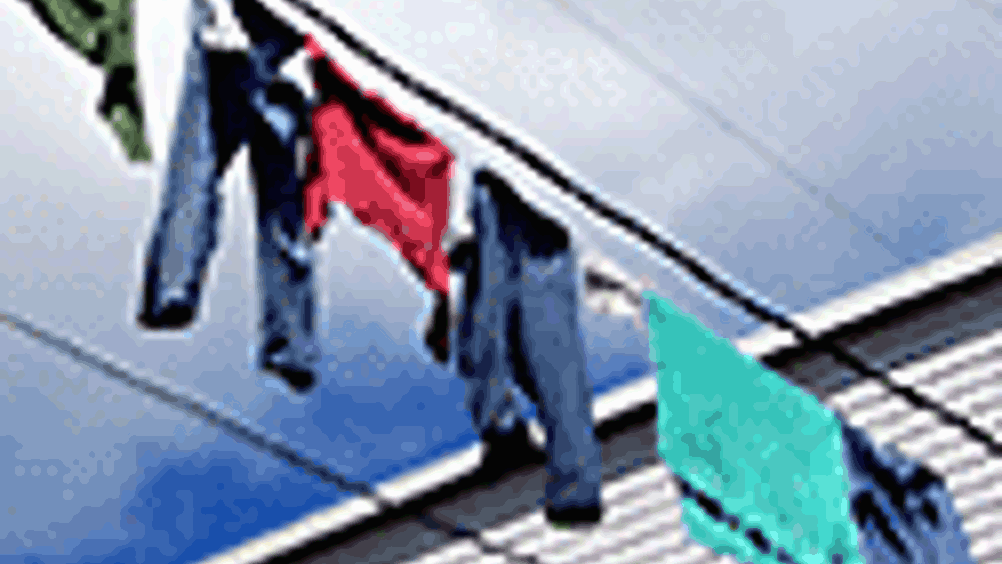Economy wash
Granule technology could mean new-style washing machines use less water and save energy

Researchers claim to have developed a method of laundering clothes that uses as little as a cup of water in each load but gives the same results as a conventional washing machine.
The process, developed in
School of Design by Prof Stephen Burkinshaw, an expert on textiles and dyeing, is based on the use of plastic granules or chips which are washed with the clothes to absorb dirt and remove stains, using less than two per cent of the water of a normal wash. The clothes also emerge from the process almost dry, thus reducing the need for tumble-driers and saving energy.
To commercialise the technology, the university has launched a spin-out company,
, which is working with some of the biggest names in the washing and dry-cleaning industries to build a working machine. Among the company's directors is Martin Gregson who has experience in the dry-cleaning and solvents industries, most recently as technical director for
Register now to continue reading
Thanks for visiting The Engineer. You’ve now reached your monthly limit of news stories. Register for free to unlock unlimited access to all of our news coverage, as well as premium content including opinion, in-depth features and special reports.
Benefits of registering
-
In-depth insights and coverage of key emerging trends
-
Unrestricted access to special reports throughout the year
-
Daily technology news delivered straight to your inbox










UK Enters ‘Golden Age of Nuclear’
The delay (nearly 8 years) in getting approval for the Rolls-Royce SMR is most worrying. Signifies a torpid and expensive system that is quite onerous...